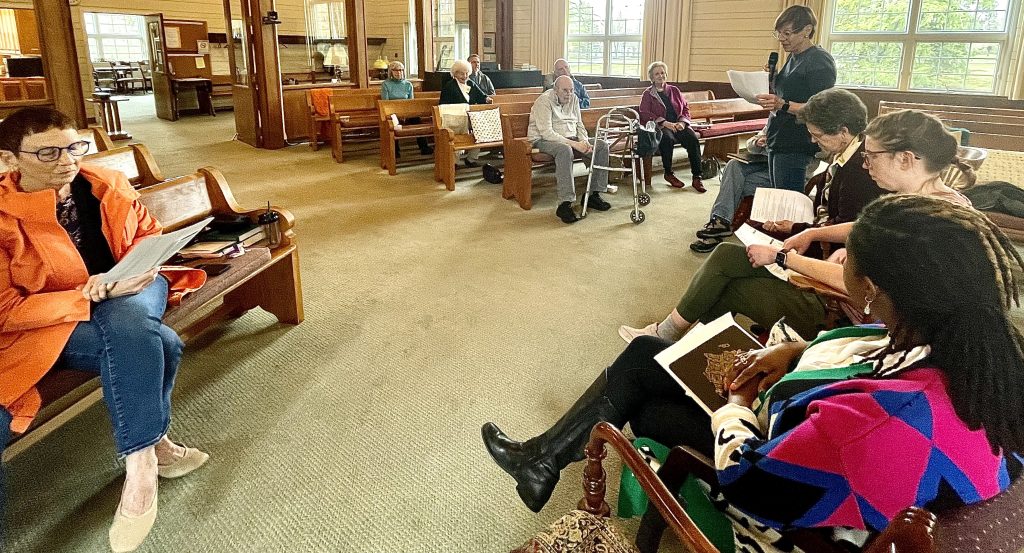
- Discern our personal and communal biases and commit to transforming our lives for the
- Listen and learn from each other as we pursue anti-racism and racial justice in our personal
- Address racism and racial disparities in our own faith communities.
- Eradicate economic disparities and systemic inequities in our spheres of influence.
- As an interfaith community, to work with civic leaders and elected officials in advocating for
- Do I see my white privilege? How can I become more aware of the advantages I hold as a caucasian person? As a Person of Color, what would I like people to know about white privilege?
- Where am I currently on the spectrum of personal racial bias? What personal work must I do to become more of an ally?
- How can I use my privilege to promote racial equality? If I don’t have that privilege, where it can be used in a positive way?
- As a beloved community, how do we live the testimony of (racial) equality?
- What can we change in our local Quaker culture to become more welcoming to people of color?
- How can we advocate for equality outside of our meeting?
- Equasion A Mighty Stream: https://equasion.org/resources/
- Racism Scale https://ccsi.org/CCSI/media/pdfs/DAY3_Handout_RACISM_SCALE.pdf
- Friends General Council https://www.fgcquaker.org/fgcresources/practical/anti-racism-resources/
- Black Quaker Project https://www.theblackquakerproject.org/
- Implicit Project https://implicit.harvard.edu/implicit/
- Anti-Racism Resources https://www.drnatedmond.com/anti-racism-resources.html
- Me and White Supremacy: Combat Racism, Change the World, and Become a Good Ancestor* by Layla F. Saad
- The New Jim Crow: Mass Incarceration in the Age of Colorblindness by Michelle Alexander
- Race Matters by Cornel West